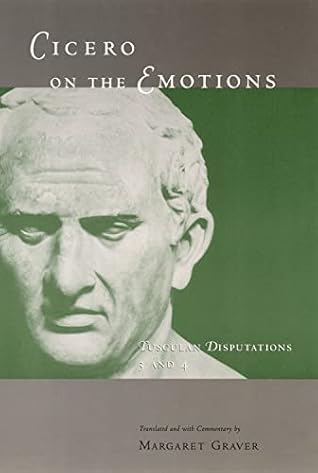Kindle Notes & Highlights
Read between
April 17 - April 21, 2018
Zeno’s definition of an emotion (which he calls a pathos): “a movement of mind contrary to nature and turned away from right reason.
Self-control soothes the impulses and makes them obey right reason, considering and maintaining the judgments of the mind; but loss of control is just the opposite: reason’s enemy,
They define an infirmity of mind as “a vigorous opining that some object is worthy of pursuit which is in fact not worthy of pursuit, that opinion being deeply attached and rooted in the mind.” The state arising from aversion they define as “a vigorous opinion, deeply attached and rooted, that some object is worthy of avoidance which is in fact not worthy of avoidance.” “Opining” is when a person judges that he knows something which he does not in fact know.
That person, then, whoever it may be, whose mind is quiet through consistency and self-control, who finds contentment in himself, and neither breaks down under adversity nor crumbles with fright nor burns with any thirsty need nor dissolves into wild and futile excitement, that person is the wise one we are seeking, and that person is happy.
Chrysippus’s definition? “Courage,” he says, “is knowledge as concerns things to be endured” or “a condition of mind which is obedient without fear to the highest law with respect to suffering and endurance.”
Virtue is a final, not an instrumental, good, yet it does not lack utility: in fact, it is the only thing that is genuinely useful in Stoic theory
Indeed, every emotion arises from false belief, whereas the “consistencies” arise


